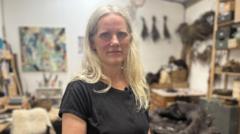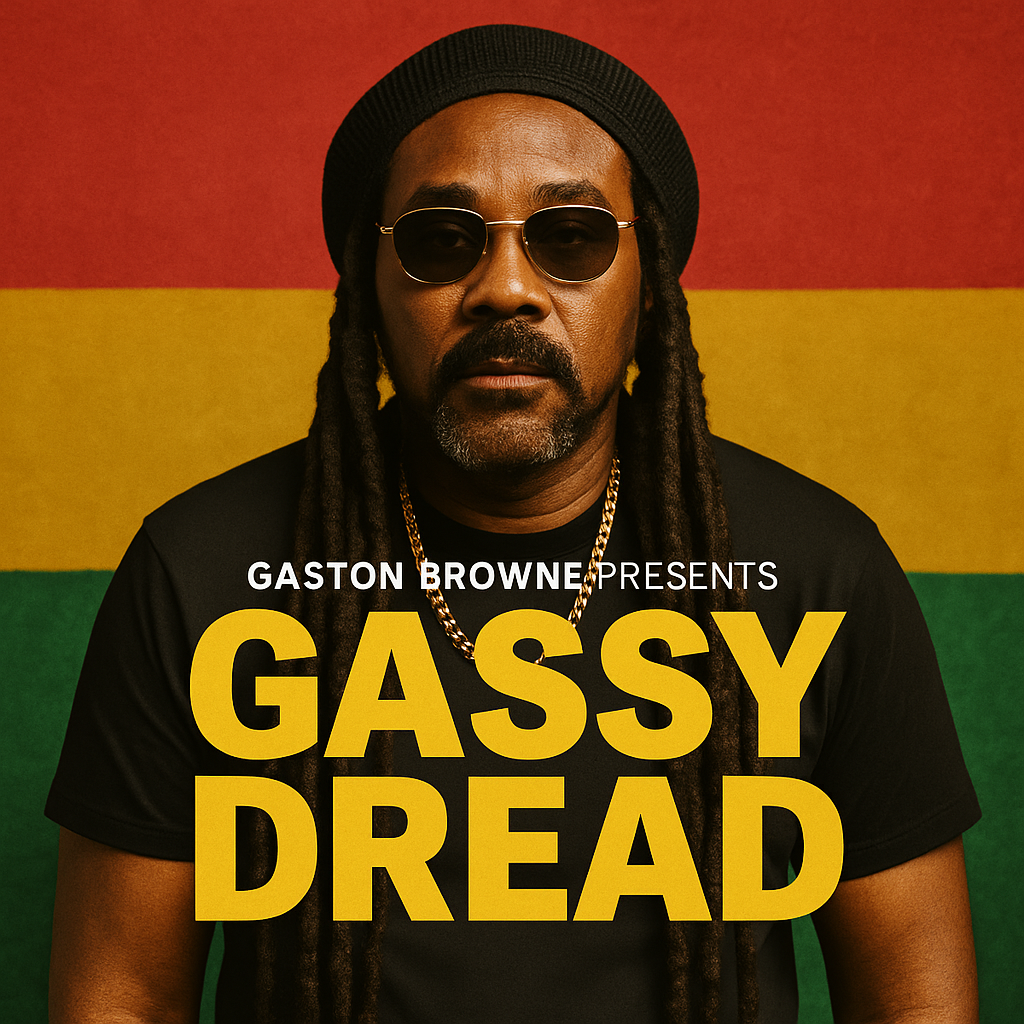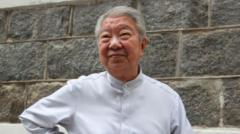In recent years, as the global conversation around climate change intensifies, eco-conscious individuals are extending their dedication to sustainability even to their funerals. Rachel Hawthorn, an artist from Hebden Bridge, West Yorkshire, is among those advocating for "eco funerals." "I don’t want my last act on this planet to be a polluting act, if I can help that," she says as she prepares to make her own burial shroud from natural materials.
Reports indicate that traditional burials and cremations have significant environmental impacts. In the UK, a staggering 80% of deaths result in cremation, which releases carbon emissions comparable to a round-trip flight from London to Paris. Likewise, traditional burials often involve non-biodegradable coffins and toxic embalming fluids like formaldehyde. With this awareness growing, Hawthorn, who also works as a death doula, emphasizes openness about death and the choices surrounding it.
Recent surveys, including one by Co-op Funeralcare, reveal that one in ten people express a desire for eco-friendly funeral options. Rachel’s burial shroud, crafted from locally sourced wool and willow, serves not just as a sustainable alternative to a coffin but also as a medium to challenge societal taboos regarding death. "When we talk about death, everyone finds it a helpful and healthy thing," she notes, highlighting the need for conversation around eco-friendly choices.
As the concept of eco funerals gains traction, companies like those in Leeds witness a surge in demand for sustainable practices. Funerals that incorporate electric hearses and biodegradable coffins are becoming increasingly popular, accounting for 20% of one director’s business since its inception. However, while these eco-friendly burials offer a more sustainable alternative, they can also come at a higher cost, reflecting the need for balance between environmental responsibility and accessibility.
Natural burial sites, such as Tarn Moor Memorial Woodland in North Yorkshire, differentiate themselves from traditional cemeteries by allowing nature to flourish without human interference, eschewing pesticides and elaborate markers. Families increasingly seek these options as they resonate with the values of the deceased, promoting sustainable legacies.
While transportation to these natural burial sites can inadvertently raise carbon footprints, advocates like Rachel continue to strive for changes in the industry. "I want to see more local natural grounds and to normalize eco-friendly deathcare," she emphasizes, envisioning a future where preparing for one’s final journey can be both environmentally responsible and a personal choice.
Overall, as society redefines death and its related customs, the movement towards eco-friendly funerals signals a significant cultural shift, prioritizing sustainability even in the final farewell.
Reports indicate that traditional burials and cremations have significant environmental impacts. In the UK, a staggering 80% of deaths result in cremation, which releases carbon emissions comparable to a round-trip flight from London to Paris. Likewise, traditional burials often involve non-biodegradable coffins and toxic embalming fluids like formaldehyde. With this awareness growing, Hawthorn, who also works as a death doula, emphasizes openness about death and the choices surrounding it.
Recent surveys, including one by Co-op Funeralcare, reveal that one in ten people express a desire for eco-friendly funeral options. Rachel’s burial shroud, crafted from locally sourced wool and willow, serves not just as a sustainable alternative to a coffin but also as a medium to challenge societal taboos regarding death. "When we talk about death, everyone finds it a helpful and healthy thing," she notes, highlighting the need for conversation around eco-friendly choices.
As the concept of eco funerals gains traction, companies like those in Leeds witness a surge in demand for sustainable practices. Funerals that incorporate electric hearses and biodegradable coffins are becoming increasingly popular, accounting for 20% of one director’s business since its inception. However, while these eco-friendly burials offer a more sustainable alternative, they can also come at a higher cost, reflecting the need for balance between environmental responsibility and accessibility.
Natural burial sites, such as Tarn Moor Memorial Woodland in North Yorkshire, differentiate themselves from traditional cemeteries by allowing nature to flourish without human interference, eschewing pesticides and elaborate markers. Families increasingly seek these options as they resonate with the values of the deceased, promoting sustainable legacies.
While transportation to these natural burial sites can inadvertently raise carbon footprints, advocates like Rachel continue to strive for changes in the industry. "I want to see more local natural grounds and to normalize eco-friendly deathcare," she emphasizes, envisioning a future where preparing for one’s final journey can be both environmentally responsible and a personal choice.
Overall, as society redefines death and its related customs, the movement towards eco-friendly funerals signals a significant cultural shift, prioritizing sustainability even in the final farewell.






















